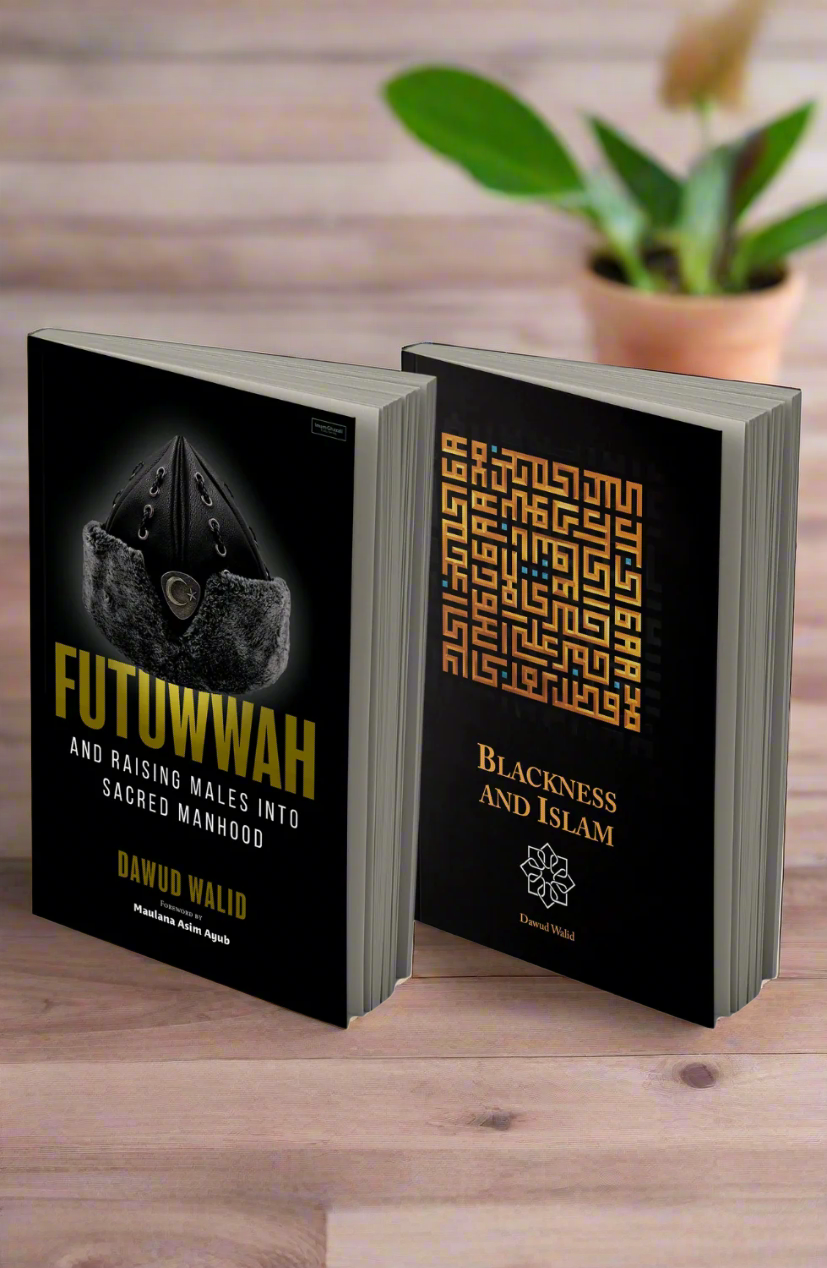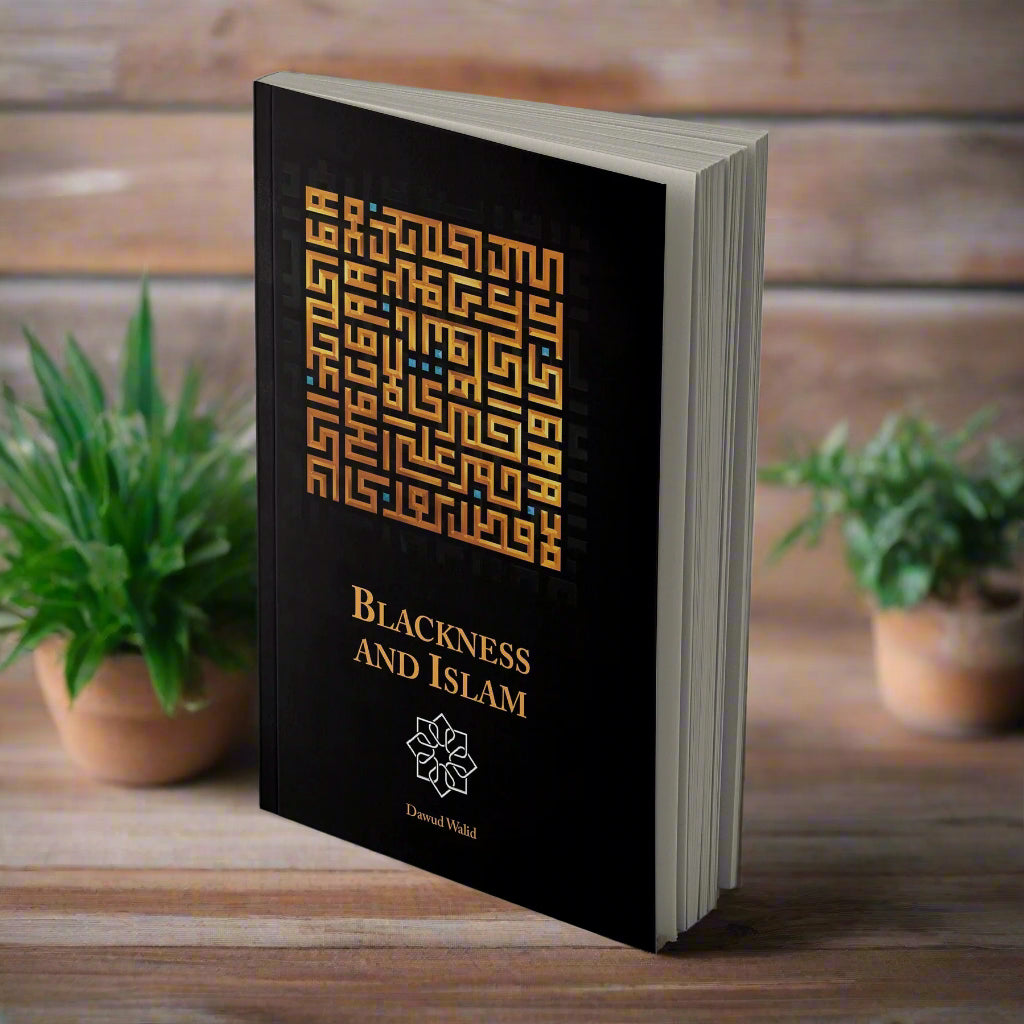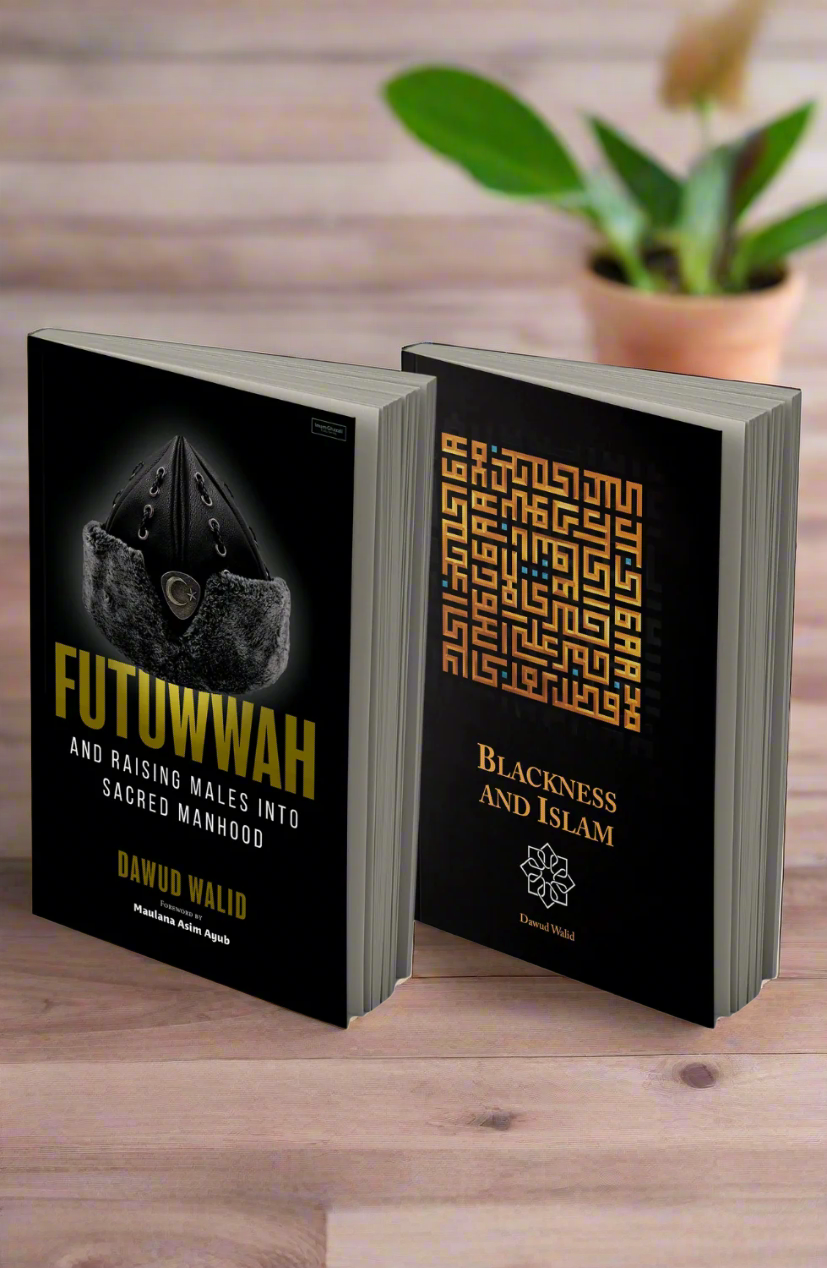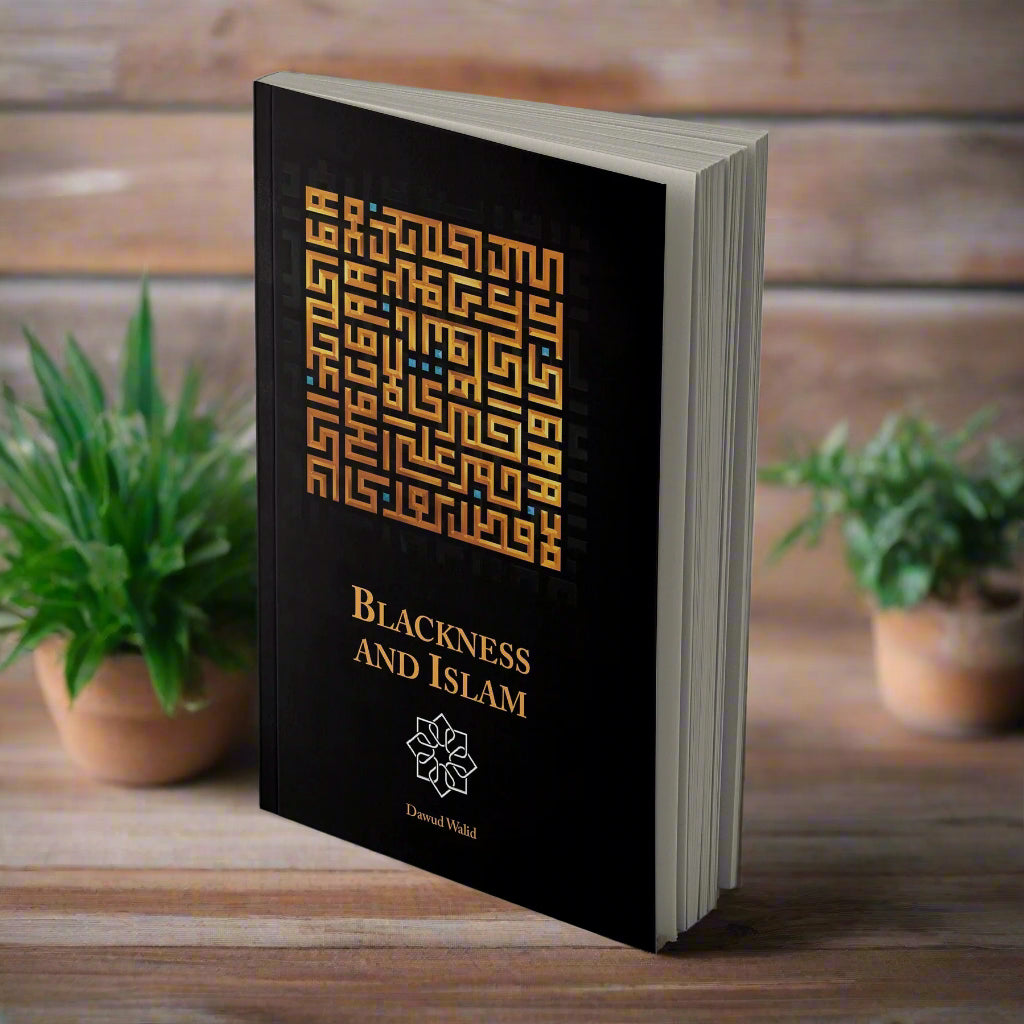Imam Dawud Walid collection
Imam Dawud Walid collection
Imam Ghazali Publishing
Couldn't load pickup availability
Collect both works by Imam Dawud Walid - Futuwwah and Blackness and Islam.
Futuwwah:
Futuwwah and Raising Males into Sacred Manhood concisely discusses the principles within futuwwah, or spiritual chivalry, that young men should strive to embody and should inculcate into our communities. While the virtues discusses in this text are not all exclusively related to young males becoming men, this book is tailored towards males, and the specific issues faced by males as they strive to grow into the path of manhood. Just as young women need their own spaces to learn from women how to become honorable sisters, young men require their own special places to instill in them the virtues of upright brothers.
The Islamic tradition calls for a revival of organized training relating to spiritual chivalry and sacred manhood - this is the task of the hour. There are beautiful and majestic qualities embodied by the Prophet s that he passed down to his family members and pious Companions. Those upright men were methodically raised up: they undertook rites of passage, and manly responsibilities which were placed upon them with expectations that they would be executed with excellence.
This book begins by establishing the linguistic and operational definitions of the Arabic word futuwwah, translated here as "spiritual chivalry." The text then discusses the essential virtues for developing healthy manhood, in a specific order of their priority in teaching. The Qur'anic verses, Prophetic narrations, and sayings of pious Companions and scholars on the subject of futuwwah are related with sound meaning, accompanied by meticulous citations in footnotes and endnotes.
Blackness and Islam:
Muslims speak of Islam in egalitarian terms: the religion of peace, the religion that seeks to elevate man over his base desires, the religion that does not discriminate based on race and ethnicity. Despite the egalitarian spirit of Islam, the lived reality of many Muslims is very different, and this is most apparent when we observe how Muslims deal with race and ethnicity.
Muslims who are Black in the West in particular, have found that while Islam may not discriminate based on race, many Muslims do. To make matters worse, some of those Muslims will delve in to the Islamic tradition to justify their biases and bigotries, seeing no contradiction between their racism and the Islamic ideals.
This work seeks to clarify and debunk some traditions which support their racist positions, and presents biographies of early Muslims who were Black. The biographies of these great Muslim personalities shows us how Blackness was a normal part of life for early Muslims, in sharp contradistinction to modern prejudices against Black folks found in some Muslim communities.
“Imam Dawud Walid’s life’s work – in his previous publications, in the present volume and over the decade that I have known him – commends him as a soldier against satanic racism and especially its most perfect historical expression: white supremacy. This volume, by framing a religious response to what must be understood as a satanic spiritual attack, should be widely read and taught.”
– Dr. Rudolph Bilal Ware – Associate Professor of West Africa, Islamic Knowledge & Spirituality
Share





